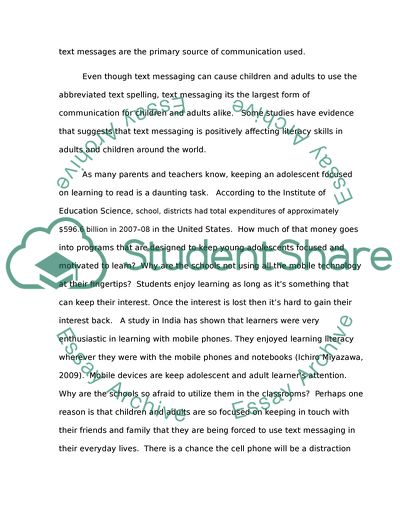Cite this document
(“Text messaging and the positive effects on literature Essay”, n.d.)
Retrieved from https://studentshare.org/education/1588206-text-messaging-and-the-positive-effects-on-literature
Retrieved from https://studentshare.org/education/1588206-text-messaging-and-the-positive-effects-on-literature
(Text Messaging and the Positive Effects on Literature Essay)
https://studentshare.org/education/1588206-text-messaging-and-the-positive-effects-on-literature.
https://studentshare.org/education/1588206-text-messaging-and-the-positive-effects-on-literature.
“Text Messaging and the Positive Effects on Literature Essay”, n.d. https://studentshare.org/education/1588206-text-messaging-and-the-positive-effects-on-literature.


